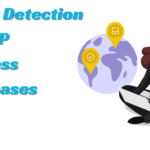chrome.//net-internals: The effective Chrome DNS cache system
- 1 What is chrome.//net-internals Cache system?
- 2 What are the benefits of chrome.//net-internals?
- 2.1 Real-Time Network Event Monitoring
- 2.2 chrome.//net-internals In-Depth Analysis
- 2.3 Sockets Managing Active Network Connections
- 2.4 HTTP/2 Optimizing lading pets using chrome.//net-internals
- 2.5 What are the common issues that result in a handy Troubleshooting of Chrome// net- internals when it isn’t Loading?
- 3 Conclusion
- 3.1 FAQs
- 3.1.1 Q: What are the alternates to chrome.//net-internals?
- 3.1.2 Q: Are there any security Considerations when using chrome.//net-internals?
- 3.1.3 Q: Is not cleaning your system using a DNS cache system harmful?
- 3.1.4 Q: Is chrome.//net-internals Cache system an extension of Google Chrome?
- 3.1.5 Q: What is the socket section on chrome.//net-internals Cache system?
In short
- chrome.//net-internals is a Google Chrome inbuilt DNS and deputy caching system that performs well.
- DNS flush will make your computer abolish any stored information regarding DNS names and IP addresses.
- chrome.//net-internals works efficiently to provide Real-Time network event monitoring and a perfect working environment.
A DNS caching system is one of the essential things you need to clean your gadget for perfect performance. Google Chrome has cybersurfer, an inbuilt DNS and deputy caching system that performs well. You can easily clean out or flush out DNS entries manually on Google Chrome cybersurfer. It is a system operation compatible with Linux, macOS, and Windows. Cleaning your DNS cache can be a useful tool to resolve any host connection crimes you may witness with Google Chrome or other cybersurfers. It is easy to operate and can be done directly in Chrome from an elevated command prompt window in Windows 7 or 8.
What is chrome.//net-internals Cache system?
Your cybersurfer’s DNS Cache (sphere name system) is a small databank that stores all the IP (Internet Protocol) addresses for websites. The primary purpose of this database is to make it easier for your computer to reach and protect the IP addresses of websites when their addresses change or if they produce new intel. When IP addresses become outdated or a website switches to a new address, you may encounter DNS crimes when you try to update them. Occasionally, your DNS cache may also become futile due to continued use and penetrating spots with a lower-than-perfect web safety standing. This is where a DNS cache flush comes in handy.
What is Flushing?
Just like flushing a restroom and getting rid of any old water that is stored in the tank, a DNS flush will make your computer abolish any information regarding DNS names and IP addresses that have been stored. After you perform a flush, the next time you try to use a website, your computer will ask for all the new IP and DNS information related to that point, performing an error-free browsing experience.
How to Clear DNS Cache through chrome.//net-internals?
The chrome.//net-internal scan helps you perform a DNS and Socket flush using your Google Chrome cybersurfer. If you witness any DNS or host error-related browsing issues, then these problems can be fixed by following these simple ways;
- Open your Chrome cybersurfer and go to chrome// net- internals/#dns.
- Once you arrive at this website, you will see the Clear Host cache button. Click on the button.
- After this, no communication or advisement will show you the result, but you have flushed the DNS cache on Google Chrome.
- Renew your Chrome cybersurfer and go to chrome// net- internals/#sockets.
- Hit the Flush socket pools button and renew your cybersurfer for more efficient work.
What are the benefits of chrome.//net-internals?
There are several benefits of chrome.//net-internals. Some of these are
Real-Time Network Event Monitoring
At the heart of chrome:// net-internals resides the “Events” tab. This section offers users the capability to cover network events in real time. Real-time monitoring proves fruitful when diagnosing issues similar to slow loading times or requests that have gone crazy on a website.
chrome.//net-internals In-Depth Analysis
DNS Analysis probes deeper into the tool’s functionalities and arrives at the “DNS” tab. Then, you will see a treasure of perceptivity in DNS (sphere Name System) resolution and hiding. This becomes immensely useful when troubleshooting sphere name resolution problems that might hamper your web browsing experience.
Sockets Managing Active Network Connections
Navigating further, we encounter the “Sockets” section, where you can observe and manage active network connections. This capability proves to be incredibly useful for network-related backups that might be causing frustration during your online trials.
HTTP/2 Optimizing lading pets using chrome.//net-internals
In the ever-accelerating realm of the internet, the “HTTP/ 2” tab within Chrome// net- internals takes centre stage. It offers perceptivity into the complications of HTTP/ 2 connections, furnishing web inventors with the essential tools to optimize their websites for lightning-fast speed.
What are the common issues that result in a handy Troubleshooting of Chrome// net- internals when it isn’t Loading?
When you ever encounter the frustrating issue of chrome// net- internals not loading, fret not because common results include clearing your cybersurfer cache or resuming Chrome; restoring your access to this tool can make the issue surface, but they can be resolved soon, so you do not need to worry about that. A simple website refresh or hot renewal of the tool frequently rectifies the issue, ensuring access to precise and dependable data. High inactivity can be a source of annoyance when browsing the web. Chrome:// net- internals can help you identify the root cause, similar to slow DNS resolution, allowing you to alleviate the status and enhance your browsing experience effectively.
Conclusion
In conclusion, chrome:// net-internals/#dns is a retired treasure within Google Chrome, waiting to be discovered and exercised for your benefit. Its multifaceted features make it a necessary tool for diagnosing network issues, optimizing website performance, and boosting your SEO. Incorporating it into your digital toolkit can significantly enhance your online presence and the overall stoner experience.
FAQs
Q: What are the alternates to chrome.//net-internals?
Although chrome.//net-internals is a useful tool, it is not the only player in the game. Indispensable cybersurfer extensions and external network individual tools can also be effective in specific scripts. Keep these alternatives in mind as you navigate the dynamic digital geography.
Q: Are there any security Considerations when using chrome.//net-internals?
While chrome.//net-internals is precious, it should be used responsibly and immorally. Exercise caution and avoid using it on websites you don’t own or have unequivocal authorization, as it can potentially reveal sensitive information.
Q: Is not cleaning your system using a DNS cache system harmful?
Yes, you should clean your system to achieve an efficient working environment, and this can be done by Chrome.//net-internals Cache system as it is the most protective and suitable system.
Q: Is chrome.//net-internals Cache system an extension of Google Chrome?
Yes, Google Chrome has cybersurfer, which has an inbuilt DNS and deputy caching system that performs well. You can easily clean out or flush out DNS entries manually on Google Chrome cybersurfer.
Q: What is the socket section on chrome.//net-internals Cache system?
The “Sockets” section lets you observe and manage active network connections in the DNS cache system.



















